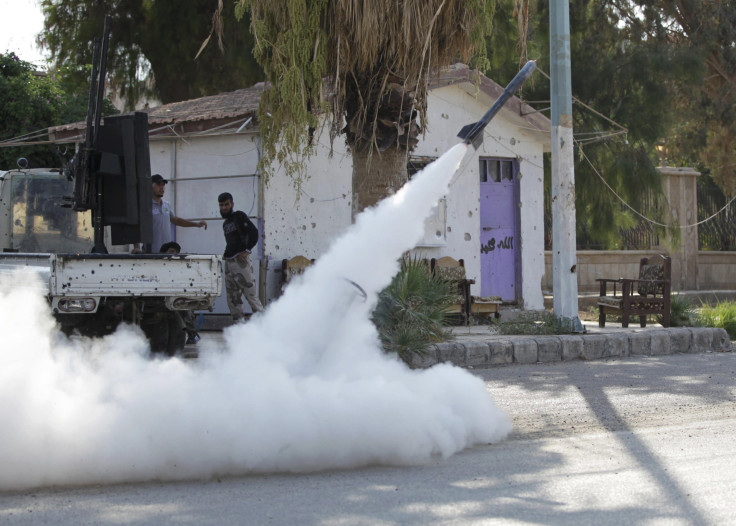London Arms Fair: Russian State Arms Exporter Still Supplying Weapons To Syria Will Display And Sell Its Hardware

In September 2005, at the start of the world’s biggest arms fair at the Excel Center in London, protesters lined the entrances into the huge massive 100-acre site, shouting expletives, throwing eggs, paint and flour at the small contingent of military staff that were seconded to help organize the event. The top military brass and politicians from more than 135 other countries were already inside, having entered through a more discrete underground entrance.
The event was 30 percent bigger than previous years, featuring, for the first time, products and services related to homeland security, anti-terrorism, access control and personal security. It was an arms fair that was catering to the mass global threat of terrorism and was playing off the ongoing wars in Iraq and Afghanistan.
The fair takes place every two years and is the pinnacle of the defense industry, representing 10 percent of U.K. high-technology manufacturing and is the No. 1 exporter in Europe, second only to the U.S. globally. DSEI, which is based at ExCeL London, is a crucial part of that industry. The industry employs over 300,000 people and generates over £35 billion ($52 billion) per year to the U.K. economy and also works hand-in-hand with the U.K. Armed Forces from factory to frontline --more than 6,000 industry personnel are currently working alongside troops in Afghanistan.
According to Amnesty International, there is evidence of arms being traded to countries such as Egypt, Iran, Libya, Pakistan, Russia, Saudi Arabia, Syria and Sri Lanka, undermining Britain’s call for peace in Syria.
In an interview with U.K. newspaper, the Daily Record, Mark Bevan said that additional evidence existed that weapons sold at the arms fair were being used to conduct rape at gunpoint and to arm soldiers.
“We urge the U.K. government to make a serious effort to ensure arms are not sold to regimes where they may be used to kill civilians – men, women, and children – innocent victims who are targeted for political reasons or find themselves in the wrong place at the wrong time,” said Bevan.
This year, a Russian arms manufacturers - Russian State Technologies Corporation, or Rostec, will be in attendance. It has sold a vast array of weapons to the Syrian Army in the past and protesters say that their invitations should be revoked immediately. This comes after David Cameron called for Bashar Assad to cease his attacks in Syria and further called for strikes against the army by the international community. Rostec will no be selling arms at the DSEi fair this year.
The rising tensions in the middle-eastern country mean that Rostec, which is Russia’s state exporter of military weapons, is likely to cause controversy as their relationship with Syria becomes apparent.
© Copyright IBTimes 2025. All rights reserved.






















